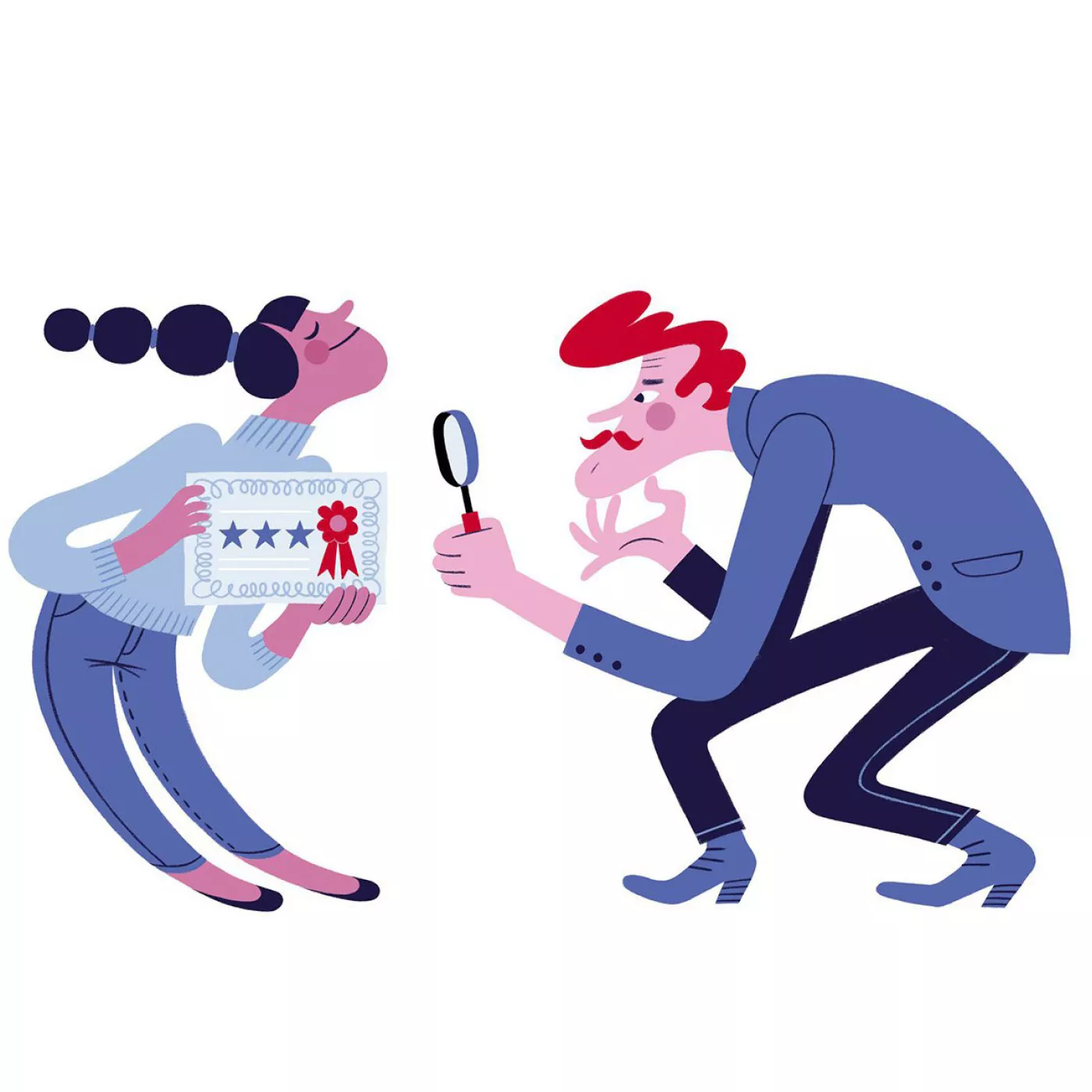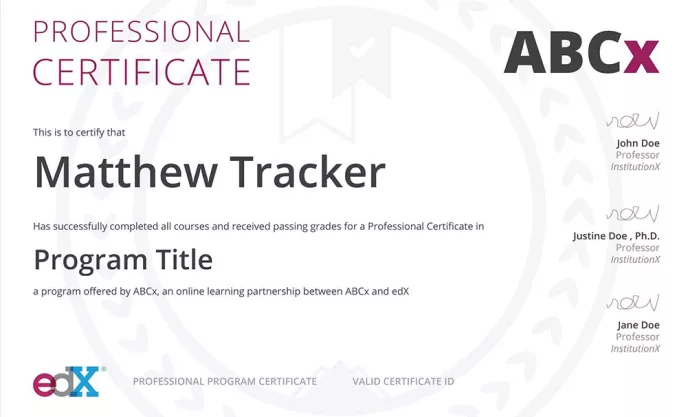The credentials challenge for online learning

The landscape of learning is constantly changing. One of the major innovations of recent years has been the explosive growth in the number of online courses. This is excellent for the democratisation of education, as more people gain access to affordable educational resources. At the same time, it is a huge challenge for higher education institutions which struggle to assess the value of a huge variety of certificates, badges and other micro-credentials.
MOOCs Galore
The current king of the online courses is the Massive Open Online Course or MOOC. On the rise since 2013, the top five MOOC providers in the world had 77.7 million registered users in 2018. Around 20 million new users per year register for online MOOCs. By end-2018, more than 900 universities around the world had launched 11,400 MOOCs and the growth rate is roughly 2,000 new courses a year.
More than 900 universities around the world, 20 million new users per year.
And it's not only MOOCs. There are also Open Educational Resources to consider, as well as a host of less officially recognised education providers offering credentials.
This is not only big business, it is also to a certain extent, big confusion. If these courses and their qualifications do not form part of a recognised degree programme, it is often very difficult for academic institutions to know the value of the online qualifications which (potential) students submit for either consideration during the admissions process, or for exemptions of study credit points.
The Wild West
"The landscape of online learning is a bit like the Wild West at the moment," says Katrien Bardoel, co-author of two Nuffic resources written to provide clarity about what is needed to help universities recognise the value of e-learning qualifications. "One can get a certificate for having simply watched a film online, or it can be a certificate for an in-depth course. There is a lot of difference between what is required from one course to another in terms of both content and examinations."
Despite being in the Wild West, most European universities are developing online courses on the one hand, and seeking tools to recognise e-learning certificates on the other. The wide variety of stand-alone e-learning qualifications (those which are not part of an official degree course) means that some standardisation would be helpful to universities and students alike. However, it is certainly not time to hit the panic button just yet, explains Bardoel.
Continue reading below the image

Prepared for the future
"There is not an overwhelming demand from people requesting evaluation for online qualification certificated right now at European universities," she admits. "At the same time, these institutions recognise there will likely be a sharp increase in accreditation requests for online courses. So now is the right time to take steps to standardise evaluations and at least have recognised methodologies and a toolbox for online education."
The Online Learning Information Tool published by Nuffic called the Practitioner's guide for the recognition of e-learning and its associated position paper Academic recognition of e-learning, both of which Bardoel co-authored, are excellent resources for university admissions staff, access office staff, faculty course directors and boards of examiners alike. The documents were published as part of the e-VALUATE project which aims to contribute to more effective policies for the recognition of new forms of online learning within the European Higher Education Area.
Educational innovation
Delft University of Technology has been at the forefront of this wave of online education from the outset. The recent boom in online learning comes as a logical extension of the more traditional open learning movement. "We started in 2007 by sharing all our open course material," says Marinke Sussenbach, head of Education and Student Affairs at TU Delft's Faculty of Technology, Policy and Management.
"Online learning encourages academic staff to re-think and modify the way they teach face-to-face."

"The next step was to become part of the MOOC movement in 2013, with a now quite famous MOOC on solar energy. Being part of a global platform and getting new knowledge about how other partners are coming up with new ideas has really inspired us," she says. TU Delft was a member of the higher education resonance group which provided feedback on the Nuffic practitioner's guide.
"Online learning encourages our academic staff to become part of innovation in education. It helps them re-think and modify the way they teach face-to-face," says Sussenbach. This results in the latest buzzword in academic education: "blended". Blended education is the combination of on-campus and online learning, which is of particular interest to TU Delft. "We know that blended forms of teaching are more effective, but we are not yet sure if they are actually more efficient," she admits.
Working on quality assurance
TU Delft also struggles with the challenge of recognition and assessment of online education certificates. "This is a totally different ballgame from our conventional education system, where there are clear quality assurance processes and accrediting parties. This is something we haven't managed to work out just yet. However, we have designed alternatives to overcome these challenges."
In that light, TU Delft now offers its own MicroMaster credential. "When completed, this is worth 16ECs and students may use this as part of their regular on-campus accredited programme, if they are admitted to the master programme and the Board of Examiners approves," Sussenbach explains. The MicroMaster is by no means an easy option for students: it is a very intense course which is essentially four different MOOCs, derived from TU Delft's Master's course on solar energy.
"Another initiative is our virtual exchange alliance where we exchange courses between a limited set of partners," she says. "The courses have been modified into online academic course to assure quality. This means, for example, that they will be assessed under academic conditions."
European standards
The European Association of Distance Teaching Universities (EADTU.eu) has been involved in distance learning since 1987, and sees online education as a main instrument in further innovating education. The association represents some 200 universities across Europe and is, among other things, heavily involved in assessing quality levels of online learning.
"We are in dialogue with stakeholders such as the European Commission and European national governments on opportunities for educational innovations," says George Ubachs, the association's Managing Director. "We focus for example on issues regarding regulatory frameworks which need to be addressed in order to provide room for further development and innovation in education."
"The digital economy is asking for different competencies and skills, and continuing education is growing exponentially. Yet there is no formal certification for this segment."

The standardisation of online educational credentials is a major topic on the EADTU's agenda, especially concerning short learning programmes, explains Ubachs. "People in continuing education do not all seek a full degree but more often look for shorter programmes," he says. "We consider continuing education and campus education as equally important. In fact, we see the potential for continuing education to outgrow campus-based learning in future. Careers are much longer now than they were in the past, and in a world where the digital economy is asking for different competencies and skills, continuing education is growing exponentially." Yet there is no formal certification for this segment.
Micro Credentials for shorter programmes
"To this end," explains Ubachs. "We have developed the Common Microcredentials Framework which was launched in April 2019. This is the first attempt to create a new qualification for shorter programmes in continuing education. Our ambition is that this becomes a European standard. It is fully in line with the European Qualification Framework (EFQ) and we opt for inclusion in Europass 2." Europass is a European Union initiative to increase the transparency of qualifications which aims to make people's skills and qualifications clearly understood across Europe.
It is evident that today's wide range of online educational resources only serve to enhance the possibilities for students and academic institutions alike. Nevertheless, now is also clearly the time for some standardisation of assessment practices for stand-alone qualifications, micro-credentials and badges in order to help students and examination bodies move forward towards a more formal, but no less exciting, educational future.
Free downloads
- Practioner's Guide for the recognition of e-learning. A step-by-step approach towards academic recognition of stand-alone e-learning.
- Academic recognition of e-learning. Recommendations for online learning providers.
- Students guide to e-learning. Tools to finding the right online course to help you in your (student) career.